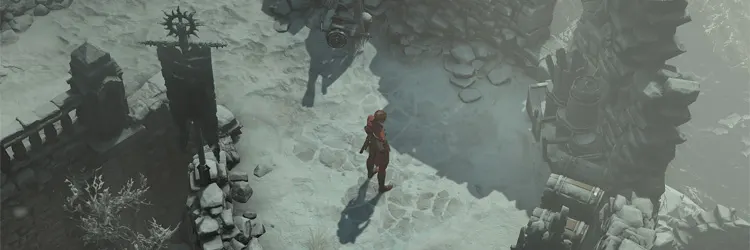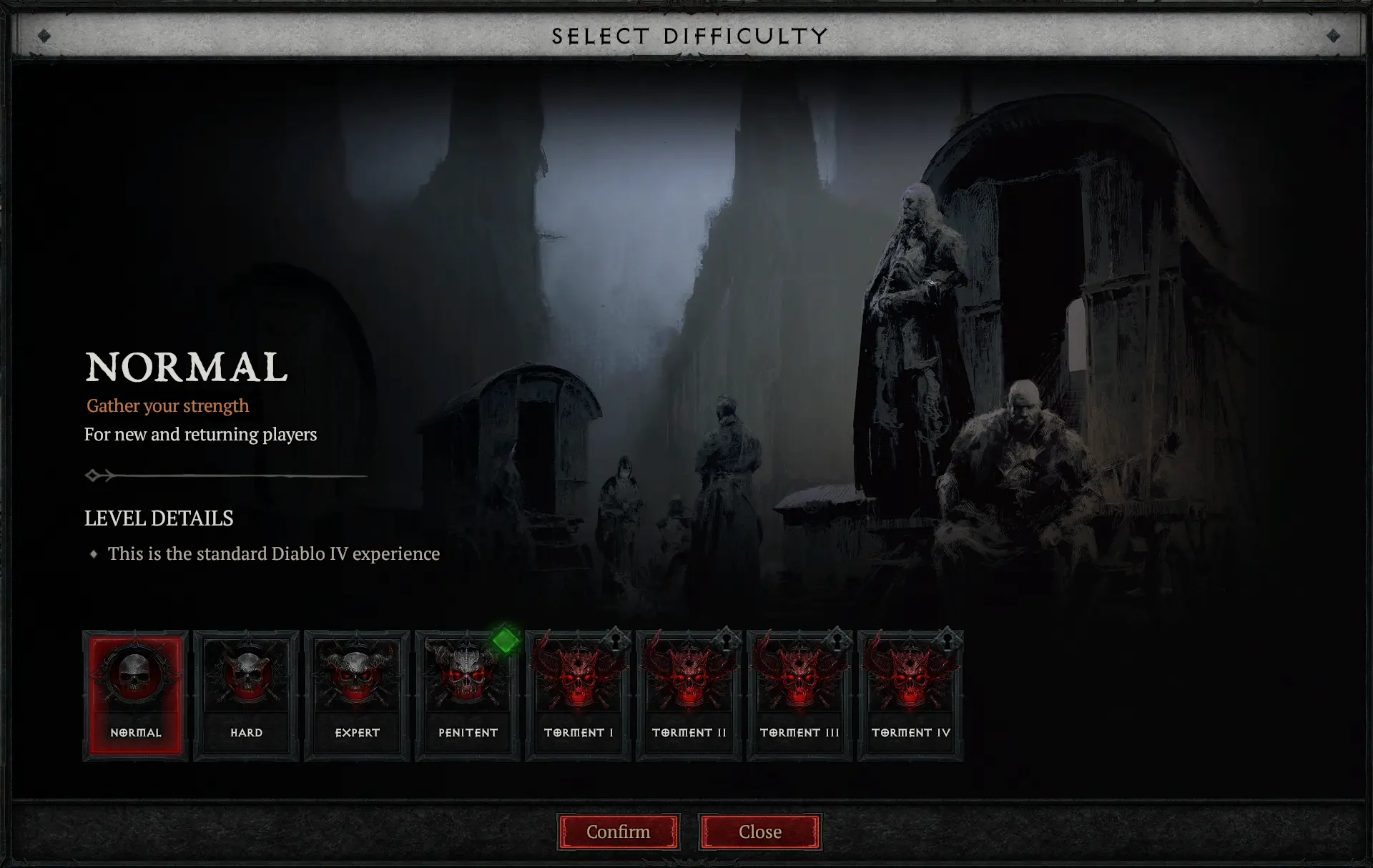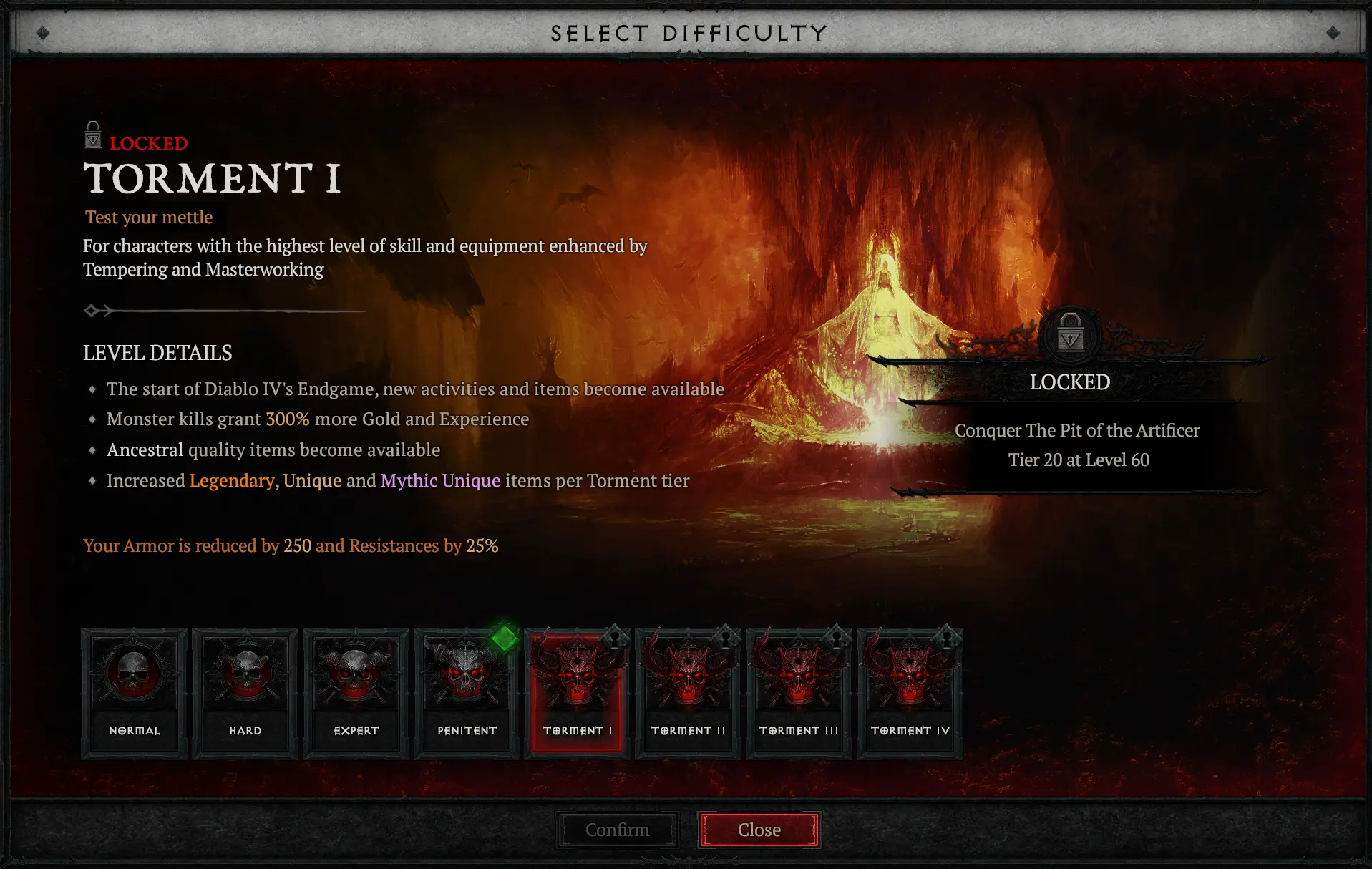Difficulty Overview
Last Updated:April 24, 2025|Changelog
There are various difficulty settings in Diablo 4. They impact your adventures traversing the world seeking treasure and challenging content alike. Expect to run for your life in the highest of difficulties. After creating your character, you choose what Difficulty you want to start with. These are designed to provide a challenge for the player while leveling. Let's look over them and see how they work in the latest installment.

Standard Difficulties

Click the image to expand
These four difficulties are considered the Standard Difficulties of Diablo 4. For battle-tested Diablo players, difficulties beyond Normal serve as a way to make sure your leveling experience is not dull and keeps you on your toes. Beware though, as these harder difficulties are more challenging compared to normal. If you get a strong item that enables a powerful build, consider changing to higher difficulties to reap the rewards. Some builds that take longer to come online (need more Skill Point/gear investment) to function may require you to play on Normal for a better quality of life.
Torment Difficulties

Click the image to expand
Torment Difficulties is where the true endgame begins in Diablo 4. Players must reach level 60 and progress through the Pit to unlock the new Torment Difficulties. This is no easy task, as each increase in Torment reduces the player's armor by 250 and resistances by 25%, up to 1000 armor and 100% resistances. Below is a list of the Pit level requirements to unlock this endgame challenge.
- Torment 1: Complete Pit level 10.
- Torment 2: Complete Pit level 25.
- Torment 3: Complete Pit level 40.
- Torment 4: Complete Pit level 55.
Like in previous Diablo iterations, extra effort rewards more experience and drops. Additionally, Ancestral Legendary items with higher item powers start to drop.
- Each Torment level gives you a 100% Bonus in Gold and Experience.
- Ancestral Quality items and Mythic Uniques start dropping.
- An increased amount of Legendary, Unique, and Mythic Uniques for each Torment level.
Content Progression
Nightmare Dungeons now scale based on the difficulty you are playing, and still require Nightmare Sigils to open. These dungeons give progressively more rewards based on the Difficulty, but if you activate a Sigil without being ready for the increased difficulty, it is consumed. Starting in Torment difficulties, you can engage with Infernal Hordes and challenge the Endgame bosses of Diablo 4. Infernal Horde functions the same as Nightmare Dungeons, so make sure you are strong enough to clear the content to avoid wasting Infernal Compasses. The endgame bosses in Diablo 4 require the following Boss Lair Keys to challenge.
| Boss Name | Items Required |
|---|---|
| Echo of Varshan | Malignant Hearts x 12 |
| Grigoire, the Galvanic Saint. | Living Steel x 12 |
| The Beast in the Ice | Distilled Fear x 12 |
| Lord Zir | Exquisite Blood x 12 |
| Urivar | Judicator's Mask x 12 |
| Duriel | Shard of Agony x 4 |
| Andariel | Pincushioned Doll x 4 |
| Harbinger of Hatred | Abhorrent Heart x 4 |
| Belial, Lord of Lies | Betrayer's Husk x 4 |
To learn more about how to fight these Bosses, read our full Boss Guides.
Summary
- Difficulty in Diablo 4 is a hybrid between Diablo 2 and Diablo 3.
- There are 4 starting difficulties for new players, ranging from Normal for new Players to Penitent for those looking for a challenge.
- Each Difficulty is a good stepping stone towards the next, but beware that the difficulty ramps up quickly.
- The game challenges you with more monsters, activities, and resistance penalties. However, it also rewards you in experience and treasure alike.
Happy exploring, just don't die while doing it!
Credits
Written by Avarilyn.